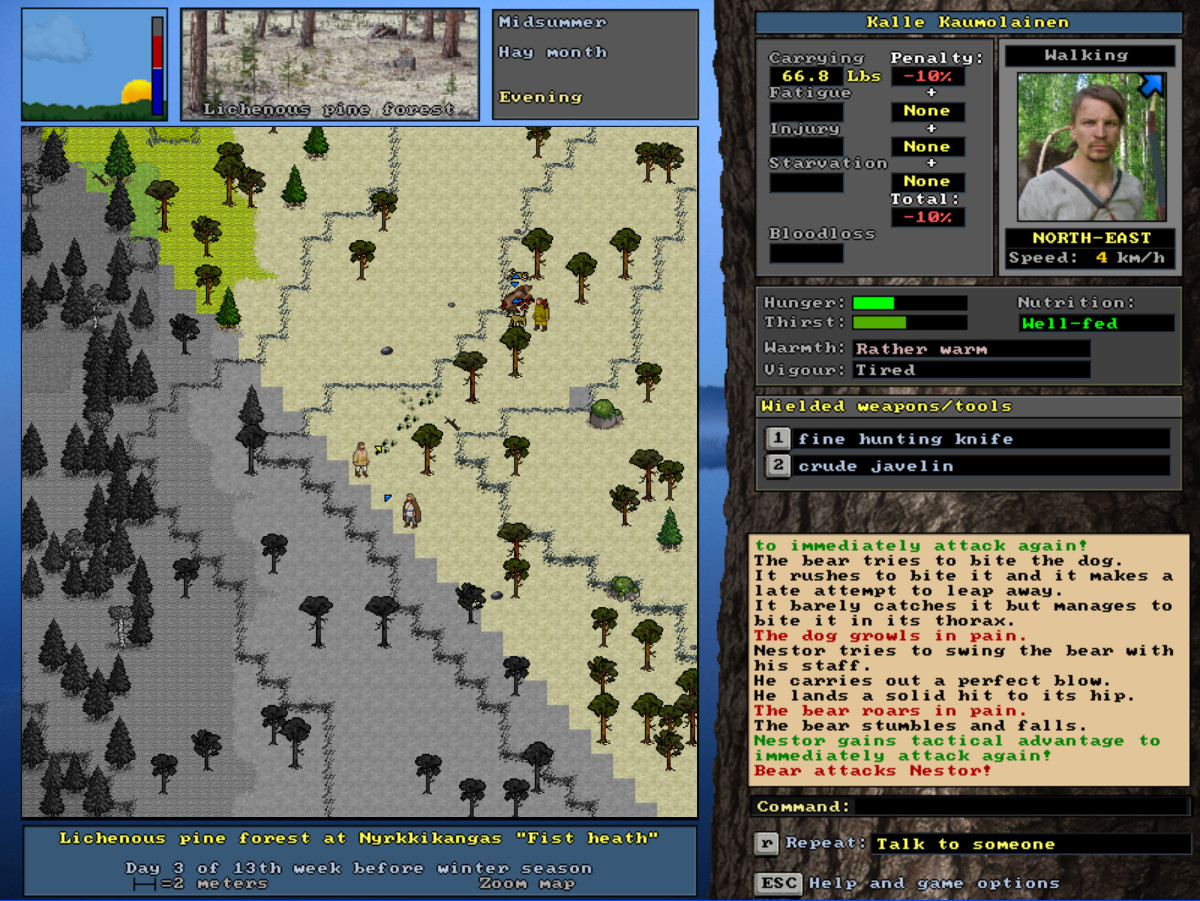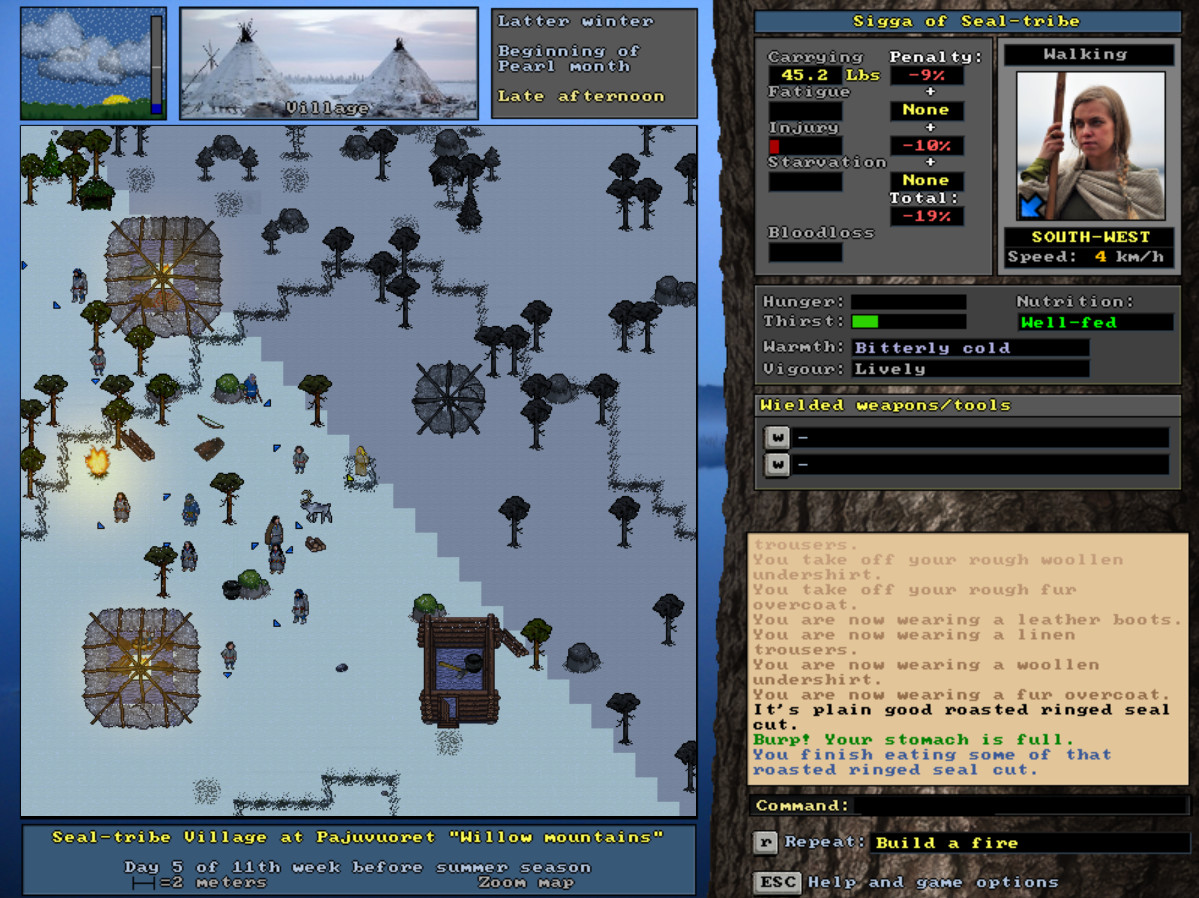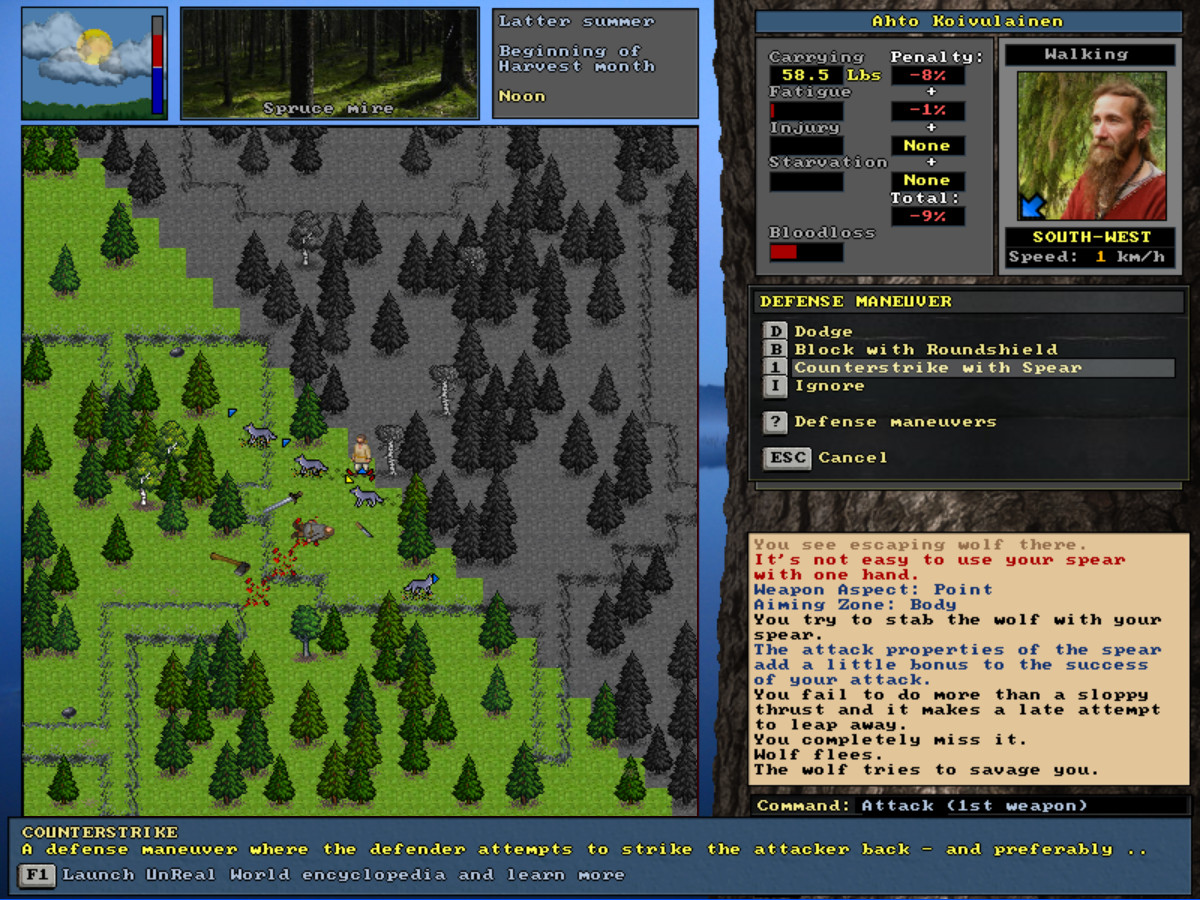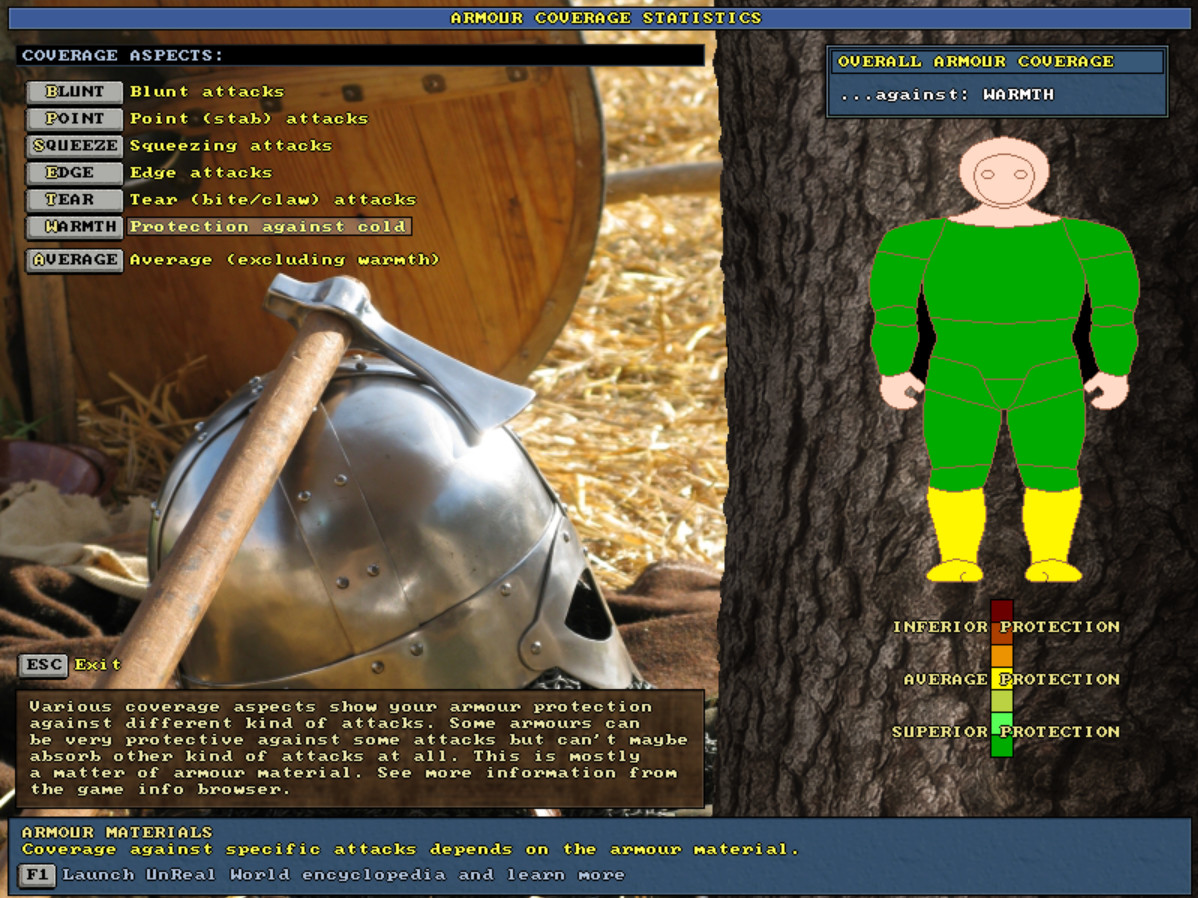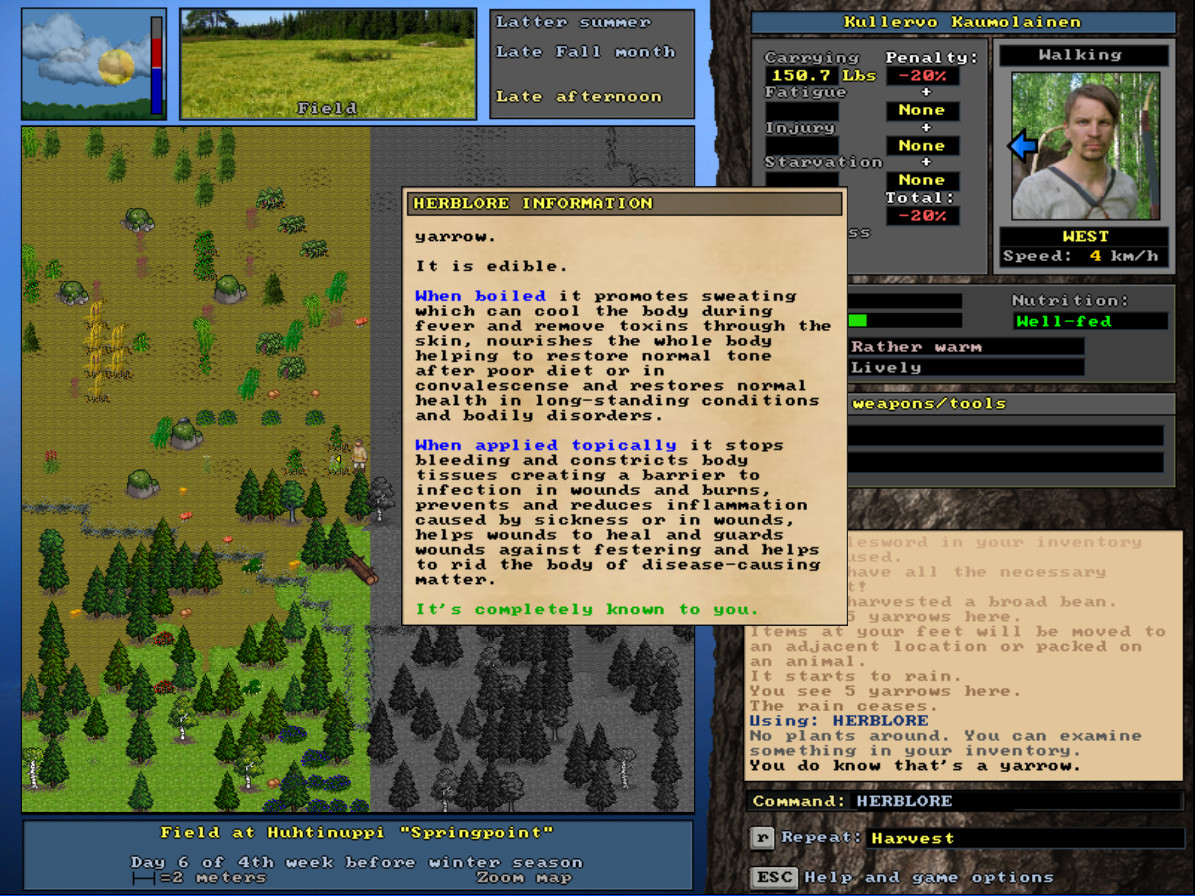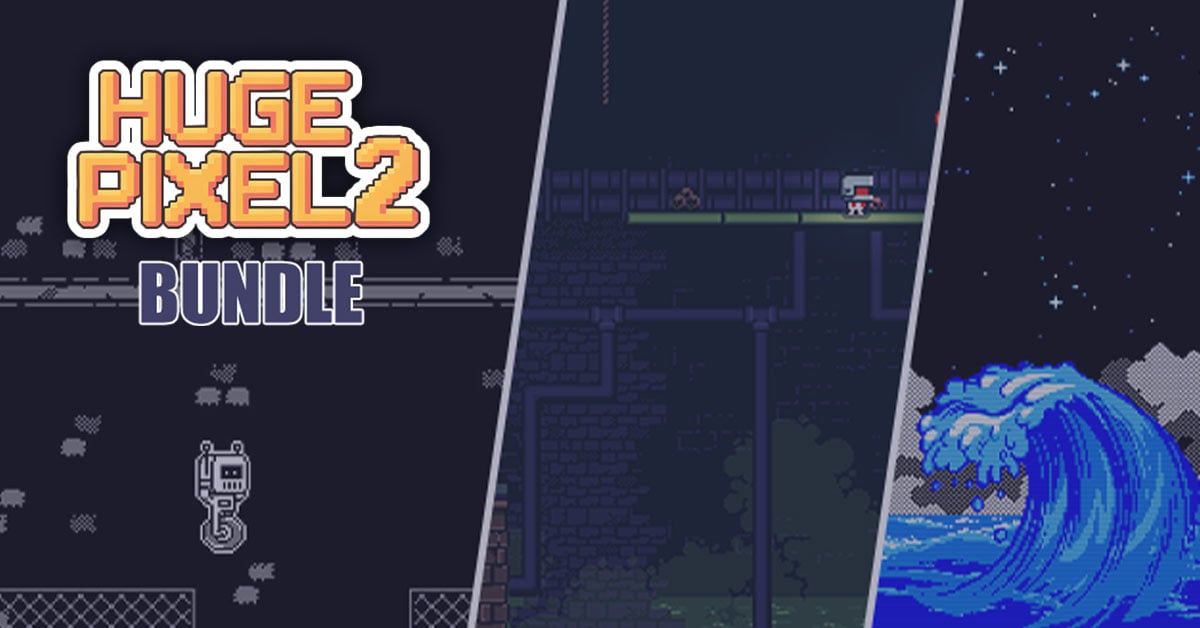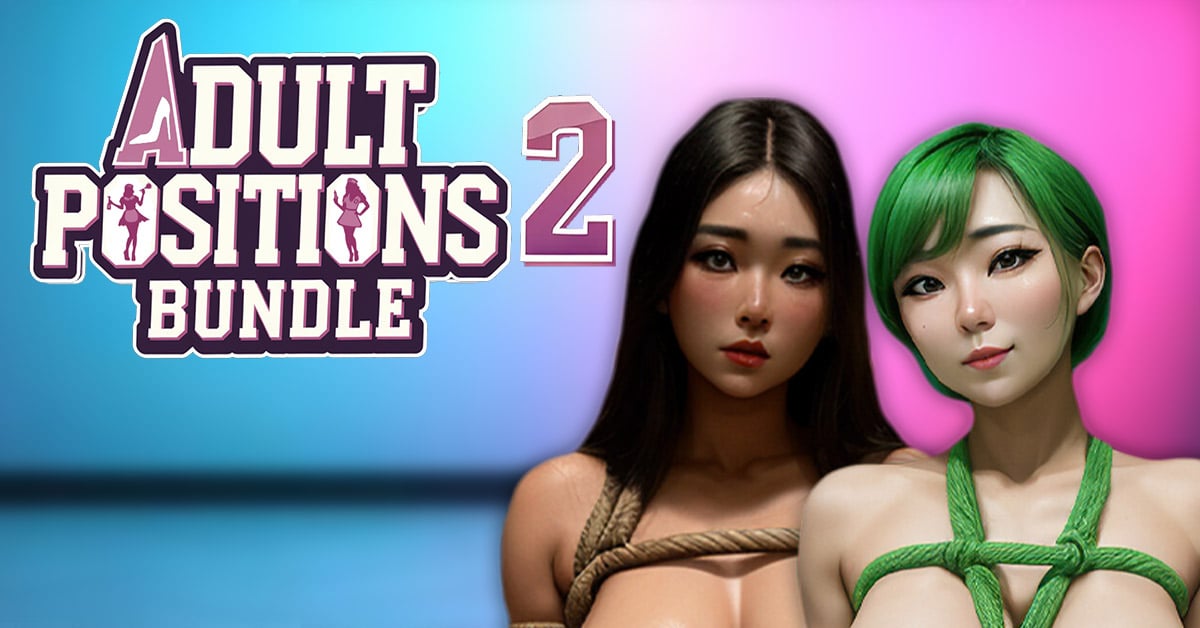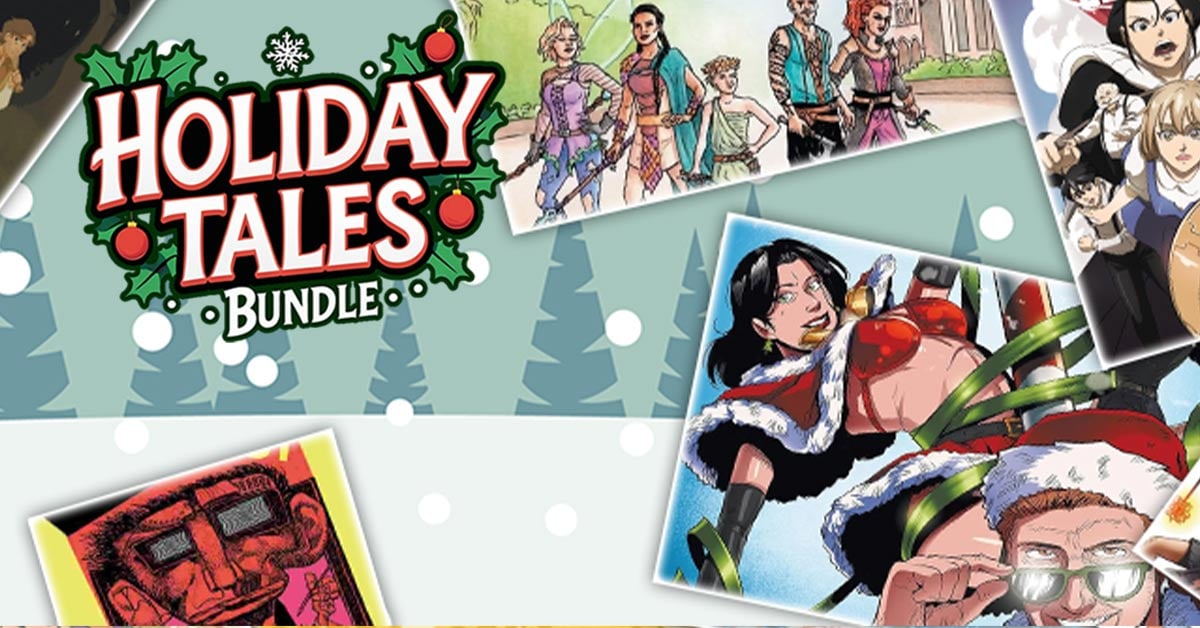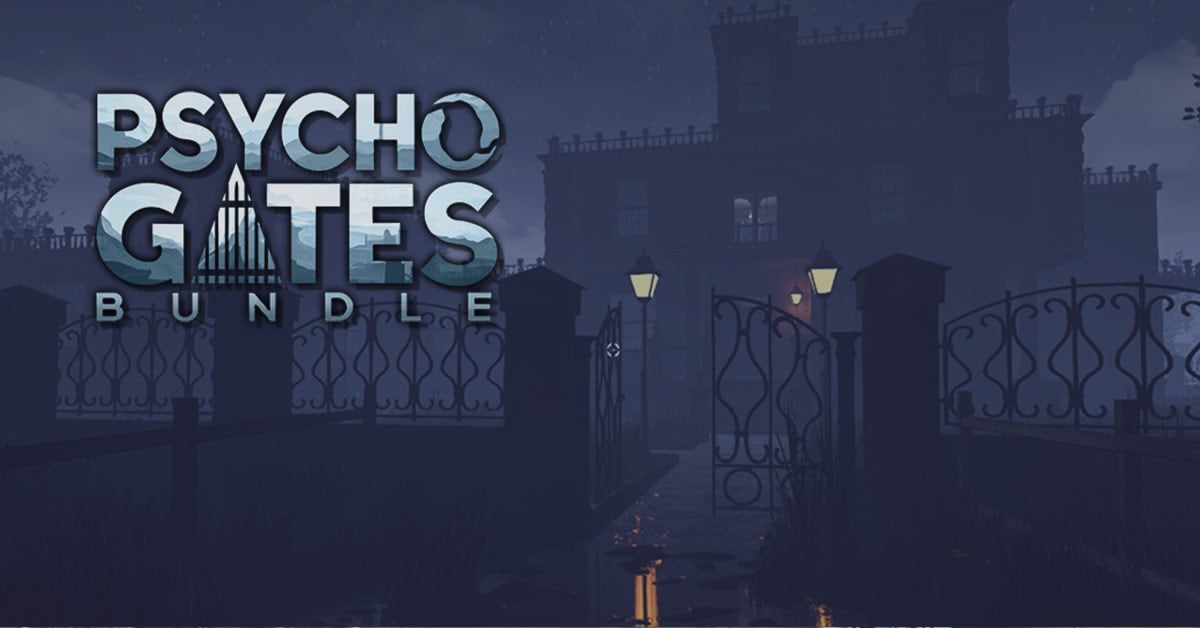Into the Far North we shall take you -- as far as we can by the means of computer role playing...
UnReal World is a unique combination of roguelike roleplaying game and survival simulation set in the Far North long, long ago. Throughout the years, UnReal World has been praised for its depth, realism, atmosphere and immersion. The game is completely open-ended and you decide whether you wish to lead a life of a fisherman, a hermit searching for the peace, a brave adventurer, a rough hunter, a trapper or a tradesman.
As a member of one of the nine different cultures you'll enter a detailed and enchanting iron-age game world in which northern folklore, knowledge and way of life play an important part. The world and mechanics of the game are highly realistic, rich with historical atmosphere and emphasized on survival in the harsh ancient wilderness.
A wide world with vast forests, mires and mountains to roam and watercourses to row is randomly and procedurally generated - and you can live off the land and explore it on very detailed level. Track animals, set traps, hunt with bows and spears, tan hides, go fishing, pick berries, cook food, sleep in a temporary shelter or build a log cottage, trade with the villagers, craft items, interact with cultures near and far -- and so much more.
A few of the key features:
- turn-based and open-ended - think before you act and live off the land as you please
- random world generation for endless replayability
- intricate procedural world full of wonders both mundane and extraordinary to explore on very detailed level
- no character classes but nine different cultures to choose from
- skill based system including multitude of skills from cookery to hideworking, from herblore to tracking
- detailed terrain generation with diverse and accurate northern vegetable kingdom
- convincing northern animal kingdom with species specific behaviour patterns and feeding relationships modelled in detail
- keep in touch with the spirit world and the supernatural guardians of nature
- find excitement in surviving everyday life and the quest for success in the harsh ancient wilderness
- detailed combat (and hunting) with many tactical options and galore of weapon, battle experience and combatant related factors resulting in vivid and rewarding struggles
- no "hit points" but detailed generation of injuries such as bruises, fractures, tears and cuts to specific body locations
- injuries rated to determine their effect to physical activity
- craft items from weapons to traps, build constructions for temporary shelter to log cabins
- moddable crafting, building and flora
- and so much more. Everything is up to you...
The initial UnReal World Steam release doesn't feature Steam goodies such as achievements, trading cards or cloud saves but there's no end in sight and all of those will be considered in the future.
UnReal World is the longest living roguelike game of all times. It was first released in 1992 and has been continuously maintained and developed ever since.
Over the years we’ve seen dozens and dozens of new UnReal World versions each of them being complete games of their own, and still there is no end in sight to working with updates and new versions. UnReal World Steam version out now is the third evolution of the game (3.*) and a great deal of updates, enhancements and new features to it will follow.
You can get to know it more and test for free at http://www.unrealworld.fi
Oh yes, we're aiming for a new version release in October with the meat of it being the quests and the new kind of spells. I'll be still wrestling with the final additions until the end of this month, but no longer. Then it's time to wrap things up for You to unfold on some pretty unpredictable October day.
Been writing down the list of new features too and hereby you'll get to read a sneak preview about the big two to expect. Let's have a few screenshot in there too for easier digest. Some of this has been hinted about earlier, but putting it all together is in place now. And there's still September left to write a few more chapters - both the code and the news ;)
This is a list of future features to be released in October:
Quests
There are quests - and that's big. We start with around 15 quests in this version, and more will follow in the future. It's quite impossible to pinpoint it all, but here's a few lines about the most important ideas, features and mechanics regarding the implementation of quests.
The quest system as a whole is an enormous (and laborous) addition. We haven't taken the easiest path, but use verbose dialogue, procedural generation and randomization to maintain replayability and immersion.
Quests don't come in your way in linear or fixed fashion. Not in the the same order, not from the same NPCs, not in the same locations, and so on. Some of the quests may appear several times, some only once.
The plots vary from everyday chores and problems to folklore and mythology based stories and incidents.
We've paid attention to making quests also to fill in the game world and the worldview of the player (character) to good and interesting extent. There are both mundane and otherworldly things to discover, solve and learn.
Quests bring a lot to the game, but open-ended and non-linear roaming, adventuring and surviving remains the essence. You are likely to get involved in quests relatively rarely. Perhaps only once or twice a month or so. And in the end it's completely up to player characters as to what extent, if at all, they want to unfold the quests and stories there now exist.
quest generation
Quests are generated on the fly during the gameplay depending on various factors, world events and pre-conditions. Things like cultural area, season, nearby landscape, character's familiarity, reputation, carried equipment or skills may all affect to whether a certain quest will appear or not. For example, a certain quest might get generated only if the character is somewhat known, has flawless reputation, it's autumn and there's a big lake nearby. Another quest may require character to be a stranger but of the same culture as the quest giver.
However, if the world events and conditions are suitable the quest generation also keeps on trucking in the background regardless of player character's whereabouts, actions or status. So, there are quests and new kind of events in the world - and then there's the ordinary open-ended life of the character. These two just may occasionally meet.
obtaining quests
Quests can be obtained by talking to people. This applies both to villagers and lone wandering NPCs, although villager given quests are more commonly met. Quests can be accepted or ignored at will, so you are free to decide in what to get involved. All the quests are told within the chat dialogue which is often versatile and not too straightforward. The dialogue proceeds based on the chat options, questions and answers, you choose. You don't always necessarily get to know all the details or tidbits. And sometimes you may learn seemingly trivial things about the UnReal World in general within the quest dialogue.
There are basically three ways to find out about a quest:
1. You talk to NPC and find out about a quest.
2. NPC comes talk to you and tells about a quest.
3. You talk to NPC, asking "How is it going?", and they tell you about a person/situation which can be investigated further and may then lead to getting involved in a quest.
So the general "How is it going?" chat option now serves as a way to ask if somebody in the village has a known quest or problem of which the other NPCs are also aware of. If there is, NPCs will hint you about it and mention who you should talk to. This kind of hints about quests are often quite vague and call for asking the NPC in question for more information. Within this sort of quest hint dialogue you can pretty much always ask where to find the NPC in question.
Notice that NPCs may also rarely have personal problems or quests of which the other villagers are not aware of.
Finding out about the quest with "How is it going?" query.
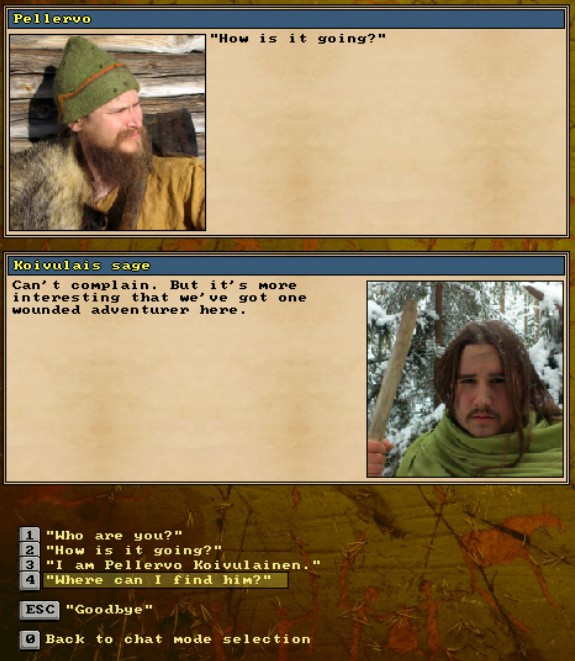
And continuing to ask where to find the person in question:
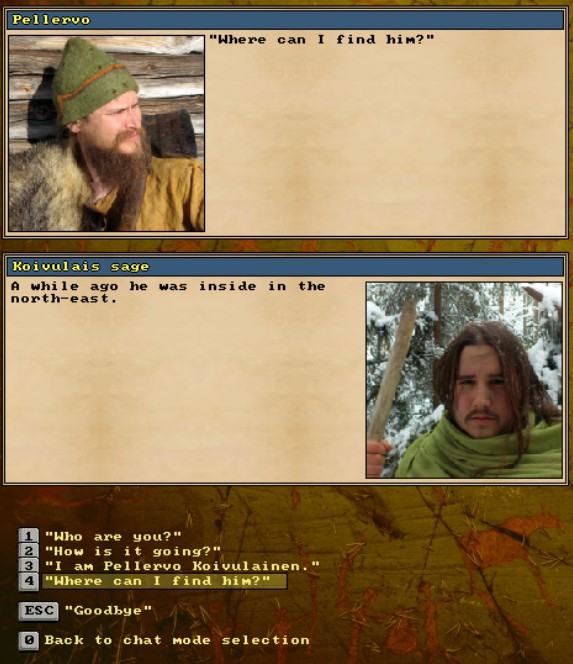
quest journal - [F2]
A new information page, quest journal, has been added. Quest journal is viewed with [F2] key command and it contains the list and details of quests the character is currently involved in, or has completed in the past.
Quest journal main page shows the list of quests along with their titles, quest giver information, assignment and expiration dates. You can then select a quest from the list to view it in detail.
Detailed quest information is provided by showing all the relevant talk lines you have heard from NPCs. We don't use ordinary "your goal is to..." quest summaries, but instead you'll see the exact information you've been told. Should you discover new information from NPCs along the way the quest journal details will update accordingly.
From the quest details page you can also view the quest related map markers. See below.
Quest journal main page.
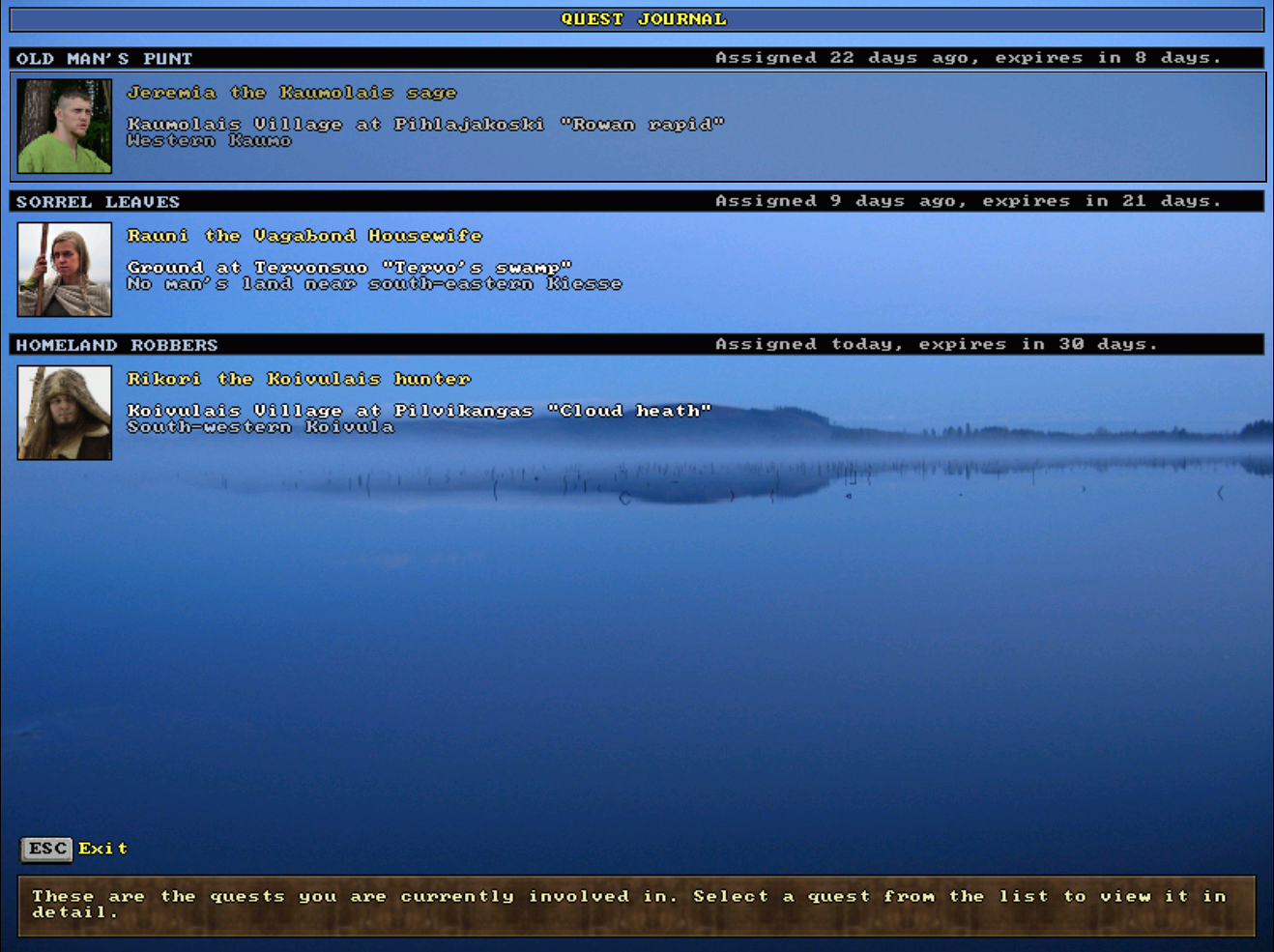
And detailed quest information is provided by showing the relevant talk lines. In this screenshot, most of the text is blurred in order not to spoil the fun.
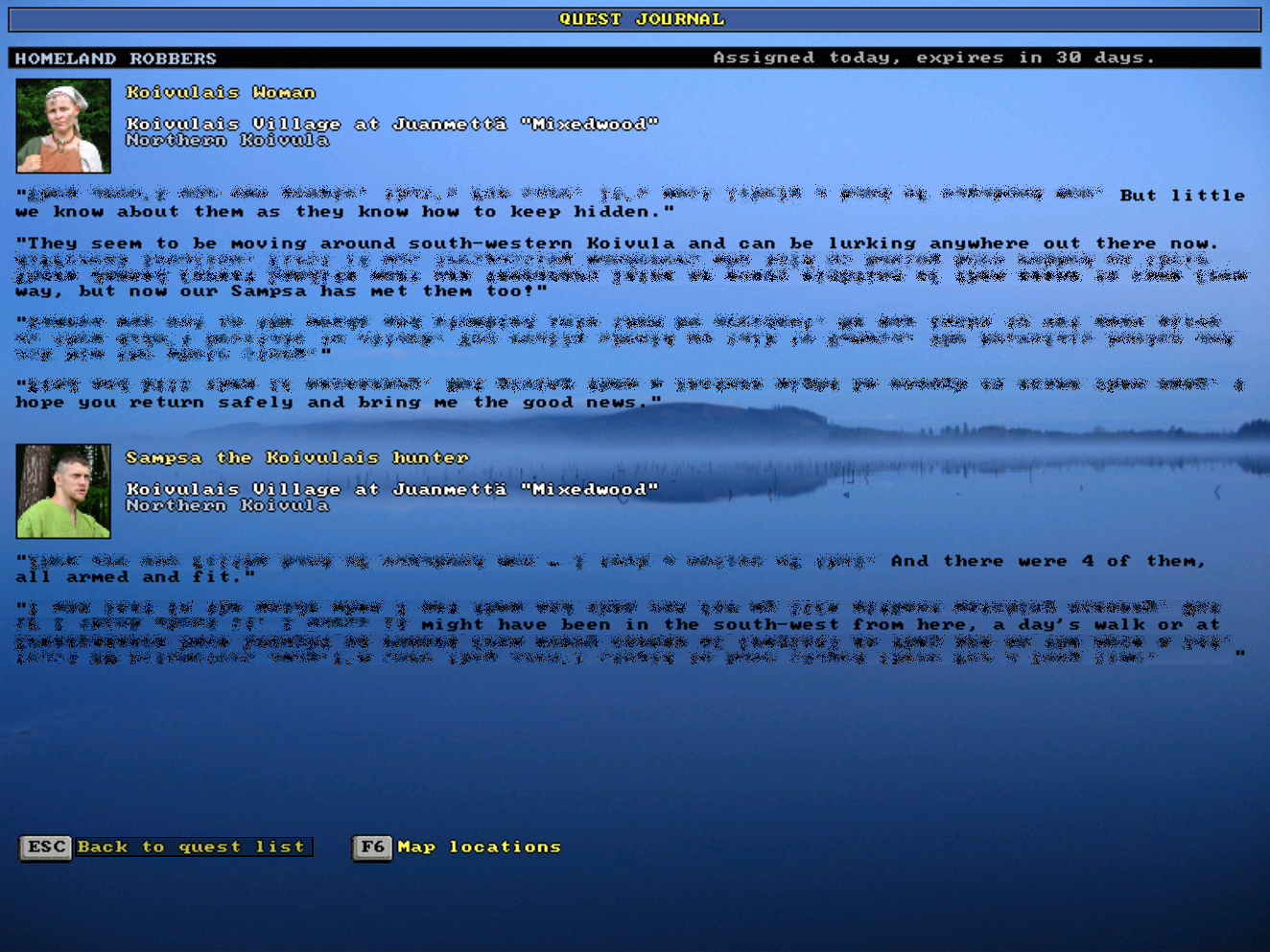
quest related map markers
Quests also add markers on the map of known areas. Locations of the related NPCs you have met and talked to are always marked on the map, but there can be also markers of important quest related areas - if you have found about them.
There's "[F6] Map locations" option at the bottom of each quest details page. It shows the map of known areas with markers of the said quest. Like all the map markers also the quest related markers can be pointed and clicked, or selected by keyboard, to view the associated information.
There are two types of quest related markers: 'Quest location' and 'Quest related area'.
'Quest location' marker shows locations of NPCs you have obtained quest related information from. These are the locations where you originally heard NPCs talking about the quest. Clicking the marker shows the quest in question and the related NPC description. You often need to return back to the quest giver after completing the quest further away, and these markers help you to find your way at the important quest related people you have met.
'Quest related area' marker indicates a specific quest related area or location somebody has told you about. Quest related locations are always described also verbally within the quest dialog, but in some cases the area markers appear to indicate rough whereabouts of the place in question. Size of the quest related area markers can vary, and they foremostly give you an initial idea of the area where to head for further investigation. Clicking the marker shows the quest in question and what the marked area is about.
Clicking for more details about "Quest location" marker (and two villages):
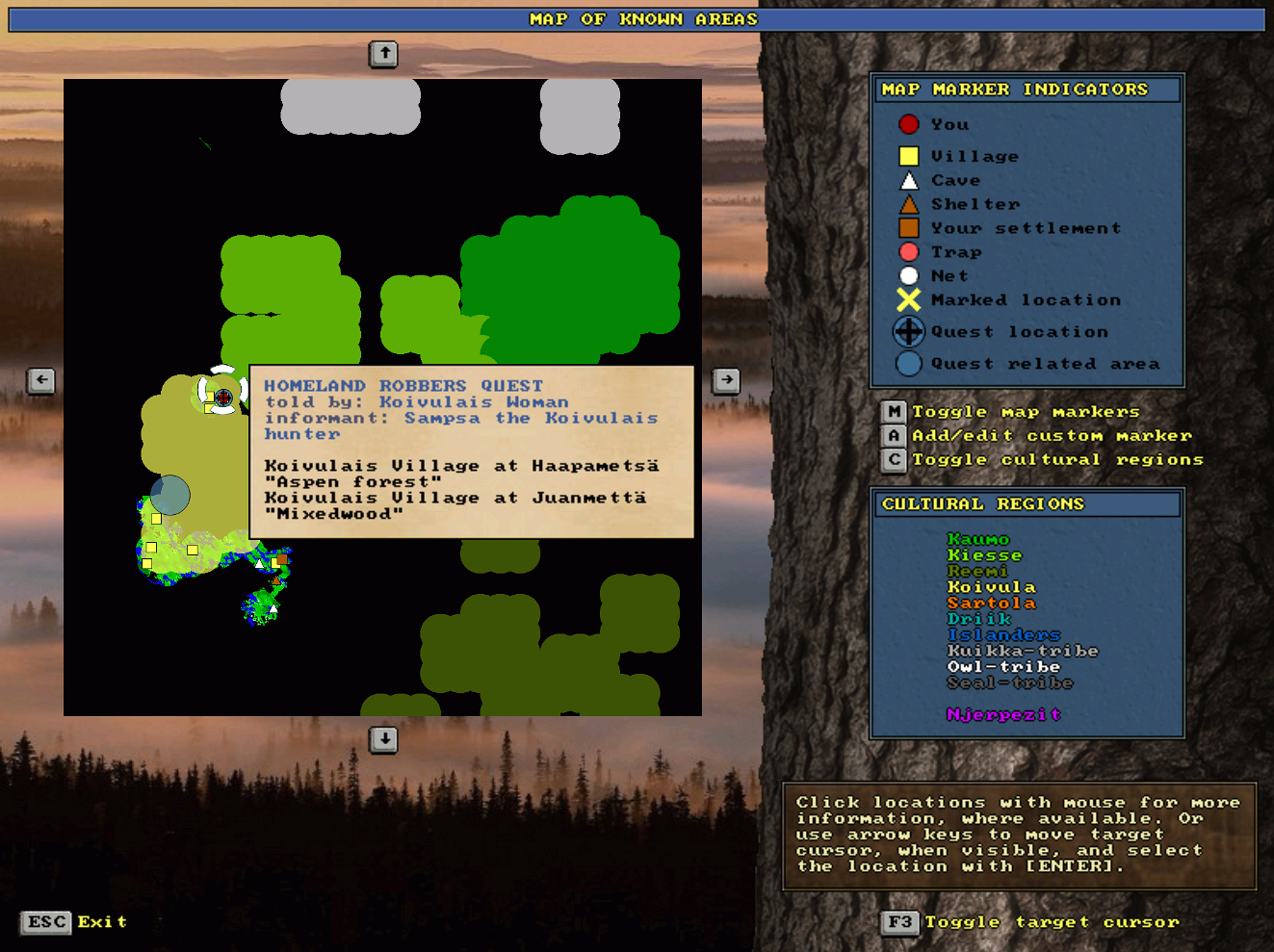
...and the "Quest related area" marker::
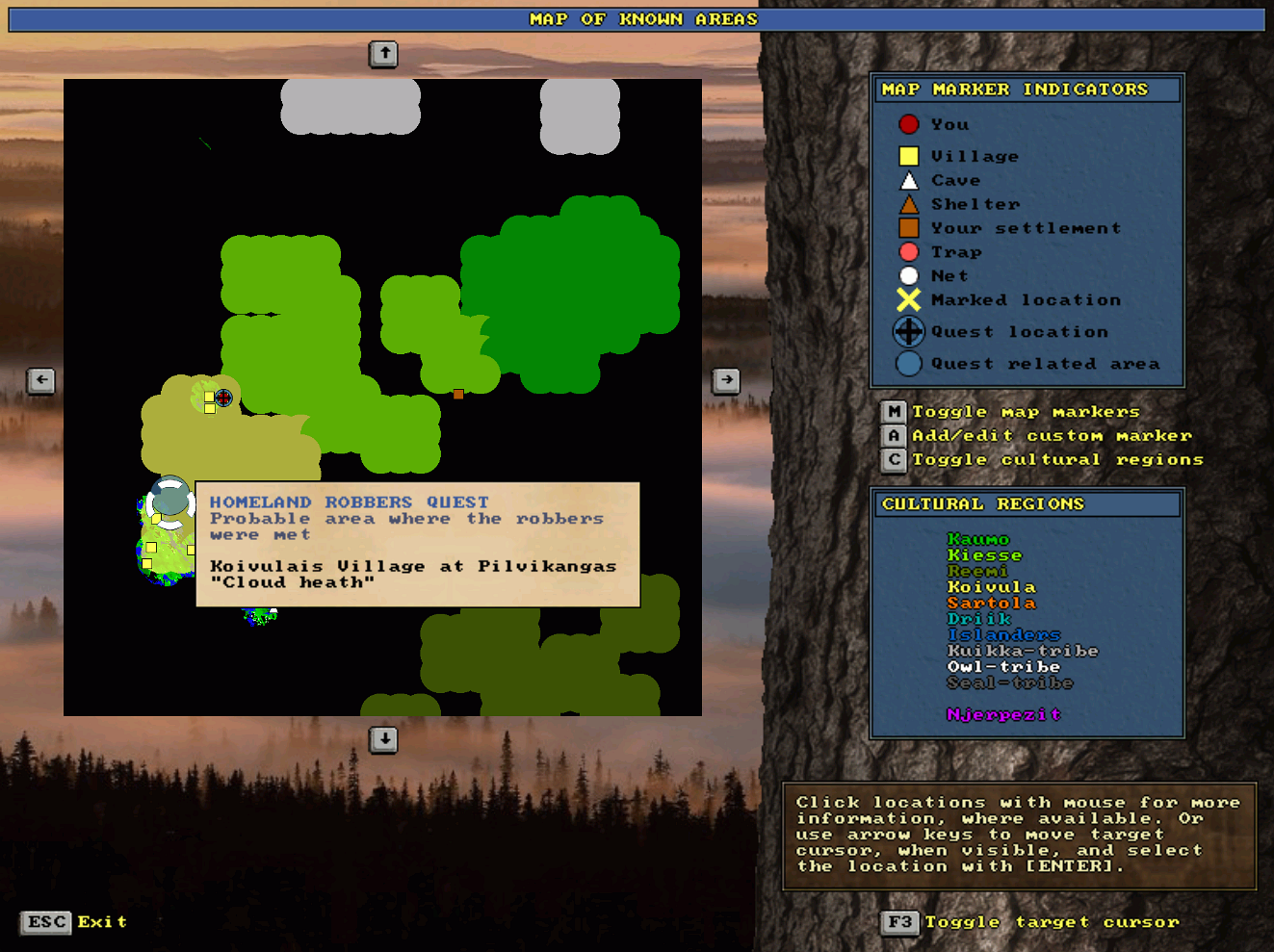
Quest rewards
You may get rewarded by NPCs for completing a quest. There are different types of reward, and here's briefing of the most important ones. In addition, completing quests also quite often increase your reputation in the eyes of the whole village, or the solitary NPC in question.
- items
NPCs can reward you with variety of items. Sometimes these are plain ordinary items, but there are also new items you can obtain only by completing quests. These new special items are often somehow magical or enchanted in nature. NPCs will describe you the properties and usage of the new special items within the quest dialog.
- get taught in skills
You can get rewarded with a lesson in certain skill which improves the said skill with 3-6 points the next time you use it in true situation. The lower the skill level is the greater skill improvement results from a given lesson. Having to actually use the skill after the lesson means that in case of a tracking lesson the improvent requires tracking skill to be used where there actually are tracks to spot. And in case of a sword lesson, the improvement requires a true sword combat maneuver to be executed. And so on.
- village goods of your choice for free
You can get village goods up to certain value for free. Upon getting this kind of reward NPCs usually tell you the value of the reward in squirrel hides which gives a rough idea about what you can expect to get.
The village goods you can get for free can be anything that villagers would also normally trade, and you can choose the goods from storehouses or individual NPCs. In practice this reward works like having a certain amount of trading credit.
After picking up your selections the items appear as 'unpaid' and you claim them to yourself through trading options the same way as you would normally trade for unpaid items. But now upon starting to trade, with the reward active, villagers tell you how much of the selected items your reward covers. If your reward doesn't cover all of the trade you need to pay for the remaining amount by normal means of trading. If the reward covers all of the trade you don't naturally have to pay anything, and the remaining value of the reward can be claimed later on. You can change your mind, decide whether to accept the deal or not and all that just like in normal trading.
It is the same with getting reward provided items from individual NPCs. Start trading, make your selections and they will tell you how much, if at all, you need to pay. Moreover, individual NPCs are usually more willing to give their goods as a reward as they would in normal trading situation.
You don't have to use the reward right away or at once, but can spend it at any time you desire. Everytime you claim some free goods NPCs will remind you about how much of the reward still remains.
- spells
You may learn new spells both as a quest reward and during the quest dialogue in general. These new spells vary from hunting and fishing spells to interacting with the spirit world. Sometimes the spells itself or following the magical means NPCs describe are required to complete certain quests. See separate spells section below for more information.
Reward covers some of the items this character wants to get:
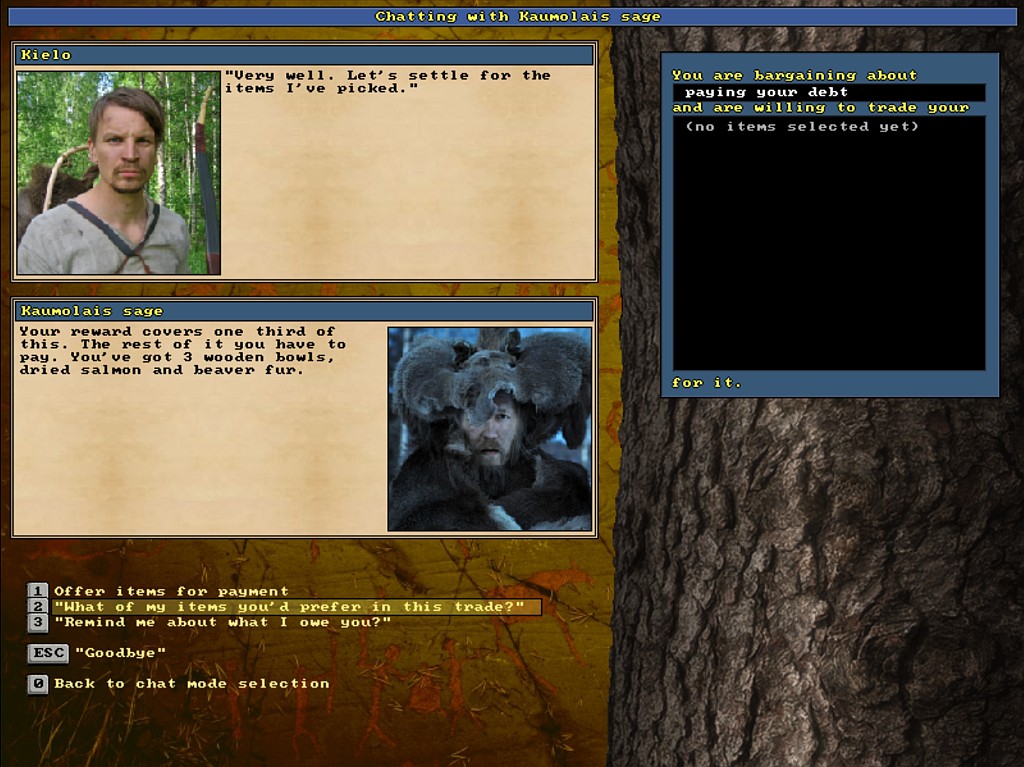
And somebody promises a spell as a reward:

New spells, in a new way
There are around 20 new spells and magical means to learn and perform. The new spells differ a great deal from the common rituals (F4) in their content and way of performance. We'll get into details below, but this all can be very well considered the start of the spell system and spirit world overhaul. The new spells are based on the worldview and beliefs of the ancient Finns - with a greatest ambition. All the new spells are based on the actual collected hunting and fishing spells.
We've pursued, in a lack of better words, for historical and mythological accuracy This comes down not only to spell backgrounds or verbal description but also to how the spells were actually performed. The new spells are not simply selected from the list for the magic to happen, but performed with the actual player character actions which vary for each spell.
* The new spells can be learned from NPCs within quests. Verbal information to perform these spells can be then found within quest dialog in the quest journal. (In the future versions we'll make the new spells appear in the ritual screen [F4] as well.)
As the spell descriptions are sometimes verbose and contain background information too they can also reveal you a little something about the people's worldview and beliefs in general.
* The new spells are often "do like this and that will happen" kind of things. To perform a spell in question you then need to follow the instructions by using the common game mechanics and actions.
For example, if the spell instructions would say "throw three rocks at a spruce tree before the sunrise and your loop snares will be favourable" the spell would be performed by throwing three rocks at a spruce tree before the sunrise. That's just an example and not an actual magical mean there is in the game, but you get the picture.
When the spell required actions have been executed there's no notification of any kind about a succesfully performed spell. If you did the right actions you've performed the spell right, and some magic did happen. If the spell actually worked in the game world or not, well, that is hopefully to be noticed at some point. That's how the spells work.
* Effects of the spells and magical means are vague and subtle as usual. Some spells are simple, some are more complex, but most often they consists of seemingly ordinary things that have magical meaning behind them once you know it. There are rarely evident results to be noticed, but nevertheless the magical, ritualistic and mythical actions you learn and perform have impact on the game world.
The actual spellbooks we've used for adding the new spells. These are reprints of collected ancient hunting and fishing spells of the Finnish people, first published back in 1890's. Ancient hunting spells (left) and ancient fishing spells (right) of the Finnish people. There are 782 hunting spells and 409 fishing spells described in the books. Clearly there's still quite a bit of more spells to add in the future.
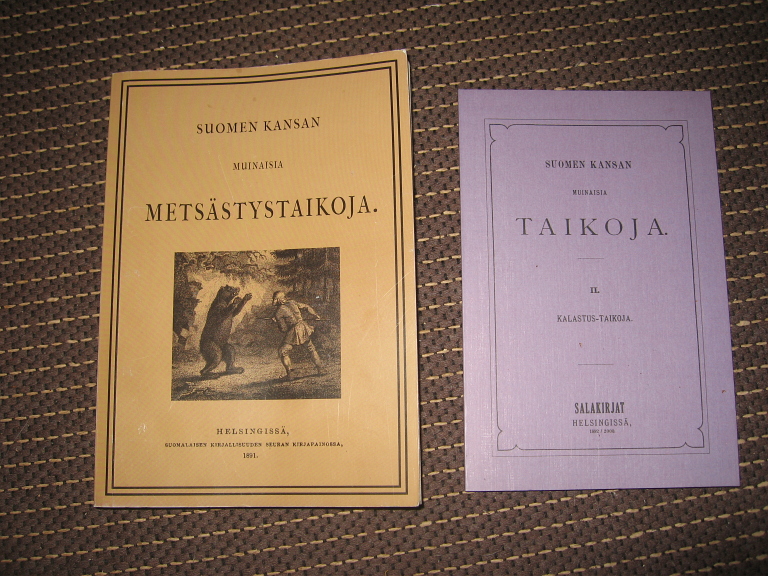
That's it. Briefly.
And of course the next version will include some lesser additions and tweaks too.
Minimum Setup
- OS: Ubuntu 20.04 LTS
- Processor: 1 GHzMemory: 512 MB RAM
- Memory: 512 MB RAM
- Graphics: 800x600. OpenGL 2.0
- Storage: 1 GB available space
[ 6421 ]
[ 5888 ]
[ 1559 ]
[ 2356 ]
[ 546 ]

